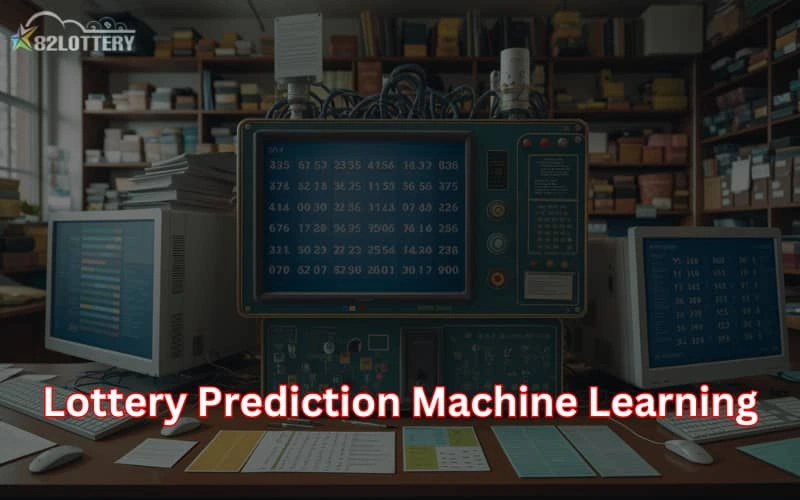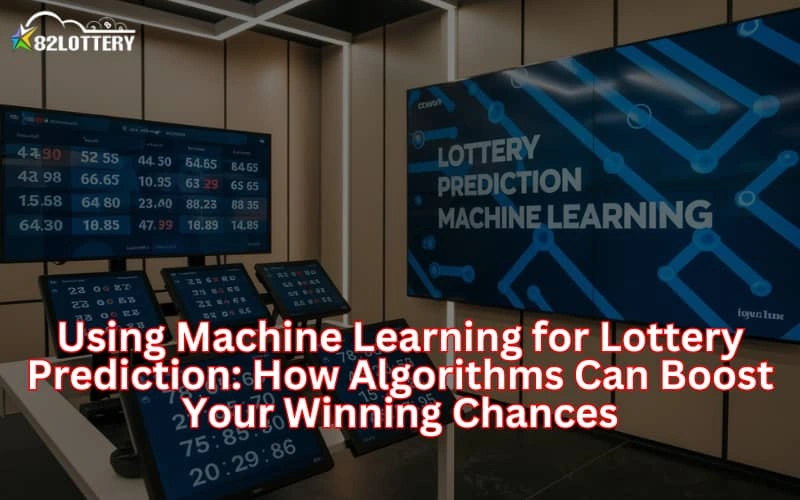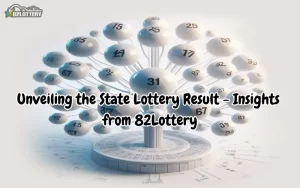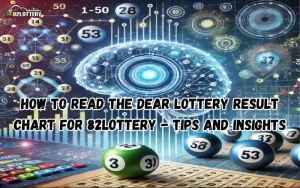Lottery games have been a source of excitement for millions of people worldwide, offering the potential for life-changing wins. However, the odds of winning are typically astronomical, which makes most people approach the lottery as a game of pure chance. Recently, there has been growing interest in using lottery prediction machine learning to boost the odds of success. While no system can guarantee a win, machine learning algorithms provide a more data-driven and analytical approach to predicting the numbers. In this article, we will explore how lottery prediction machine learning works, how it can improve your odds, and the different techniques used to create machine learning-based lottery prediction systems.
What is Lottery Prediction Machine Learning?
Lottery prediction machine learning refers to the application of machine learning algorithms to analyze historical lottery data in order to predict the outcome of future draws. Machine learning, a subset of artificial intelligence (AI), allows computers to learn from data, identify patterns, and make predictions without being explicitly programmed. In the context of the lottery, machine learning algorithms are trained on vast amounts of historical draw data, and they aim to identify trends that could offer insight into which numbers are more likely to be drawn in the future.
By processing historical results and applying advanced statistical models, machine learning can find correlations and patterns that would be nearly impossible for humans to identify. These predictions are based on data-driven approaches, rather than pure guesswork, and they use the power of computing to analyze massive datasets at a speed and scale that humans cannot match.
How Does Machine Learning Work in Lottery Prediction?
The core idea behind lottery prediction machine learning is to use algorithms to recognize patterns and make informed guesses based on historical data. north india lottery Here’s how machine learning systems are typically used for lottery predictions:
1. Data Collection and Preprocessing
To create a machine learning model for lottery prediction machine learning, a large dataset of past lottery draws is collected. This includes details such as the winning numbers, the date of the draw, and other relevant factors like jackpot size or ticket sales. This data is then preprocessed to ensure it’s in a usable format, eliminating any irrelevant information or inconsistencies.
2. Feature Selection
Machine learning algorithms don’t just work on raw data; they need to focus on specific features (variables) that are most likely to help in making accurate predictions. For example, some features might include the frequency of individual numbers, the number of consecutive numbers, the appearance of number pairs, or the overall distribution of numbers.
3. Model Training
Once the data is cleaned and relevant features have been selected, the machine learning model is trained. This step involves feeding the algorithm with the historical data so that it can learn from it. The algorithm will try to identify trends in the data and adjust its parameters to make accurate predictions. There are various machine learning models that can be used, including decision trees, support vector machines (SVM), and neural networks, each with its own strengths and weaknesses.
4. Prediction Generation
After training the model, the algorithm can begin to generate predictions based on the patterns it has identified. For example, if the model finds that certain number combinations tend to appear more often than others, it will predict these numbers for future draws. It may also take into account factors such as the time between draws or the frequency of specific number groupings.
5. Model Evaluation
The final step involves evaluating the performance of the machine learning model. This is typically done by comparing the model’s predictions to actual lottery results. If the predictions are accurate and consistently aligned with the winning numbers, the model is deemed effective. In some cases, the model may need to be retrained with updated data to improve its accuracy.
Techniques Used in Lottery Prediction Machine Learning
There are several machine learning techniques that can be used to predict lottery numbers. Below are some of the most common approaches:
1. Neural Networks
Neural networks are a type of machine learning model inspired by the way the human brain works. They are particularly powerful for recognizing complex patterns in large datasets. In the context of lottery prediction machine learning, neural networks can analyze vast amounts of historical draw data and learn intricate relationships between the numbers. Once trained, neural networks can make predictions by identifying hidden patterns in new data.
2. Regression Analysis
Regression analysis is another technique used in machine learning for predicting lottery numbers. It involves modeling the relationship between a dependent variable (e.g., the lottery numbers) and one or more independent variables (e.g., time, jackpot size, or frequency of draws). Linear regression or more advanced techniques like polynomial regression can be used to estimate future outcomes based on past trends.
3. Random Forests
Random forests are an ensemble learning method that combines multiple decision trees to improve prediction accuracy. In the case of lottery prediction machine learning, sri lakshmi results random forests can be used to assess various factors in the historical data and make predictions based on a combination of multiple decision trees. This technique is particularly useful for improving the reliability of predictions and reducing overfitting.
4. Clustering Algorithms
Clustering algorithms such as K-means are used to group similar data points together. In lottery prediction, clustering could help identify groups of number combinations that appear together more frequently. By using these clusters, the machine learning model can focus on the most relevant number combinations when making predictions.
5. Support Vector Machines (SVM)
Support vector machines are supervised learning models that classify data into different categories by finding the optimal hyperplane that separates them. SVM can be applied to lottery prediction machine learning by classifying past lottery results into different groups based on their features, then using the model to predict which category a new draw is likely to fall into.

Can Machine Learning Guarantee a Lottery Win?
It’s important to emphasize that even with lottery prediction machine learning, there is no guarantee of winning. Lotteries are designed to be games of chance, and the randomness of the draws means that no system or algorithm can predict the outcome with 100% accuracy. Machine learning can improve the odds by identifying trends and patterns in past draws, but it cannot eliminate the inherent randomness of the lottery process.
The goal of using lottery prediction machine learning is to make smarter, data-driven decisions when selecting numbers, not to guarantee a win 82 lottery download. The better approach is to view machine learning as a tool that can help you increase your chances, but with the understanding that the lottery remains a game of luck.
Conclusion
Lottery prediction machine learning offers a more analytical approach to selecting lottery numbers, using algorithms to identify patterns and trends in historical data. While these systems cannot guarantee a win, they can increase your chances of selecting more likely number combinations. Techniques like neural networks, regression analysis, and random forests offer players the ability to make smarter, data-driven decisions when playing the lottery.
As with any tool, it’s important to use machine learning predictions responsibly. Play the lottery for fun, and never spend more than you can afford to lose. lucky coupon lottery By applying machine learning-based strategies to your number selection, you may just improve your odds and make your lottery experience more engaging and exciting.






